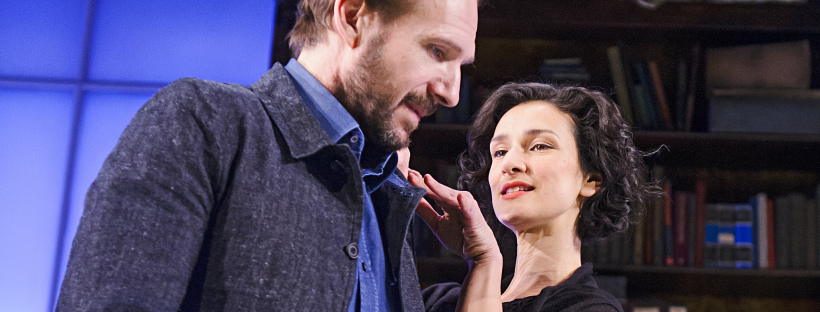Alternate question: Every Woman is not Ann but Ann is Everywoman.
George Bernard Shaw has been pre-occupied mainly with the exposition of his philosophy through the media of plays and this is a crystal truth as far as Man and Superman is concerned. Characterization or depiction of characters in their full human round has never been his forte. But nonetheless the feminine characters created by Shaw are undeniably marvelous. Raina in Arms and the Man, St Joan in Saint Joan and Ann Whitefield in Man and Superman are some of the unique creations bearing the impress of Shaw’s mature and superb literary merit.
Ann Whitefield may pertinently be called the heroine of the play. She is the fountain source of all attractions, Octavius apotheosizes her to the point of distraction and Tanner in the long run succumbs to her matrimonial suggestion, she has been presented as a graceful lady full of vitality and the charm of youth. Her eyes and looks are ensnaring indeed.
Her beauty and charm ‘make men dream.’ To Octavius; “She is an enchantingly beautiful woman the reality of romance, the inner good once of nonsense, the unveiling of his eyes, the freeing of his soul, the abolition of time, place and circumstance”.

Shaw himself has attributed an epithet: ‘vital genius’ to her. Her self-control and poise are praiseworthy, indeed. There is hardly any scope for over-emphasizing the importance of her role in the whole drama; she is an inextricable ingredient, part and parcel in the texture of this play. In the duel between the sexes or more precisely in her combat with Tanner, she wields such weapons as ultimately bring about the victory to her. She maintains throughout her free will in respect of choosing her mate. Thus ah discards Octavius in utter disregard of his passionate wooing. An artist man as Octavius has preeminently been, he is unfit to become a true husband. Tanner has been considered a proper person in this respect, whom she pursues ceaselessly and with an unswerving determination. Ultimately, despite Tanner’s unwillingness and hatred for woman and marriage, he is won over by her. Her seductive charm and enticing grace become successful in captivating and enthralling Tanner who falls a prey to her. Tanner has been very appositely regarded by her ‘as a mere baby’. She illustrates the Shavian precept that it is the woman who becomes victorious in the duel of sex. Thus she helps operation of the Life-force.
She is a glowing specimen of emancipated woman created by Shaw. Indeed she belongs to a distinctly new type. Tanner’s helplessness before her is too apparent to be over-exaggerated. He regards her as a ‘boa constrictor’ or ‘a spider’. It is she who illustrates the Shavian doctrine that ‘Man is not the victor in the duel of sex’.
She possesses an individuality of her own that sharply distinguishes her from others. She retains her individuality by dint of wit and intellectual brilliance. She exudes an aroma of breezy exuberance in any atmosphere and thereby helps dispelling the sombre gloom. Her resplendent wit and inventive ability may be exemplified by the nickname attached by her to different characters.
Thus Ramsden is called ‘Granny’ while Octavius gets from her a name of ‘rhythmic quality’, ‘Rioky Ticky Tavy’.
In logic and argumentation Tanner is defeated by her: he yields to her authority by saying:
Here endeth my first and last attempt to assert my authority.
She is not only a genius but a “vital genius” at that. She is full of tact and resourcefulness. Her pronouncements at many critical moments of her lire are indicative of her poise and aplomb, intelligence and wit. Thus, when Tanner forces her again and again to divulge the secret intention of her mind with regard to her choice between Tanner and Ramsden, she makes an intelligent response indeed:
I feel that I am too young, too inexperienced to decide. My father’s wishes are sacred to me.
But despite many laudable traits she possesses some characteristics of a coquette. She chooses Tanner as her husband and keeps on pursuing him persistently. But on the other hand, her flirtation with Octavius remains unabated. She employs all the weapons of her feminine armory in order to attract him. She pets Octavius by touching his cheeks, calls him by the nickname and subsequently deceives him. Tanner tries to make poor Tavy cautions about this woman:
You are half-wallowed already, in three bites—bite one Ricky, bite two Picky, bite three Tavy, and down you go.
She evokes in Octavius an irresistible passion which he could not withstand. Having been emboldened by the gestures of Ann, he gives her a marriage proposal. But she reacted to this in a rather dubious manner akin to that of a whore. She replied that Octavius should not have proposed to her just after the death of her dear father. Thus she bursts into tears with such abruptness that Octavius is sure to be perplexed and embarrassed. She abuses him and takes him to task by calling him a brute and a cruel person. Further she admonishes him with the statement that he ought to have taken permission from her guardian before proceeding to talk to her. Thus Octavius is befooled as he seeks Tanner’s. Permission for offering his love to Ann, She is an enchantress but no a wicked one. The deceits are calculated by her for an altogether different objective. She is an instrument of the Life-force. She craves whole-heartedly to get the fittest mate as her husband for the procreation of a better species. Thus her cunning and hypocrisy are not her interning traits. Apparently she may appear to be rather shameless (e.g, she clasps around Tanner’s neck passionately to embrace him). She has recourse to falsehood and lies. But she has to do all these only in order to ensnare Tanner. She must play the role assigned to her as an instrument of the Life-force. Her ceaseless pursuit of capturing Tanner should not be misconstrued as a foul play of a professional woman of easy virtue. Her dauntless act of going by Tanner’s car all atone is a bold adventure indeed. Apparently viewed, it would appear to be an elopement. She is determined to chase her marked-down quarry all through Europe. Hector Melone has justly remarked that she searched him “at every stopping place; she is a regular Sherlock Holmes”. Thus, by delineating the character of Ann the playwright has ushered in a revolution which ran through a long line of 20th century dramas.
Ann is both type and individual. The reproduction of a Morality play entitled Everyman left an indelible mark upon Shaw’s mind and since then, he had been contemplating on the creation of a drama on Everywoman. This accounts for the genesis of this superb Shavian specimen with Ann Whitefield as the invincible heroine, possessing trait of everywoman. “Everywoman may not be Ann; but Ann is everywoman”, “She typifies the eternal feminine, the very essence of womanhood”. She is a perfect embodiment of Shaw’s doctrine that ‘the whole world is strewn with snares, traps, gins and pitfalls for the capture of men by women; women must marry because the race must perish without her travail”. In the sexual behavior, initiative must come from the man first and the woman must await the same. But her waiting is tantamount to that of a spider for the fly. She has a definite role in the entire scheme of Nature’s contrivance for the perpetuation of the human race. She must not wait for an eventuality dependent on uncertainty. “The blind fury of creation” urges her to pin down and capture the best mate for satisfying her cherished desire for maternity which is the supreme force in Everywoman.

